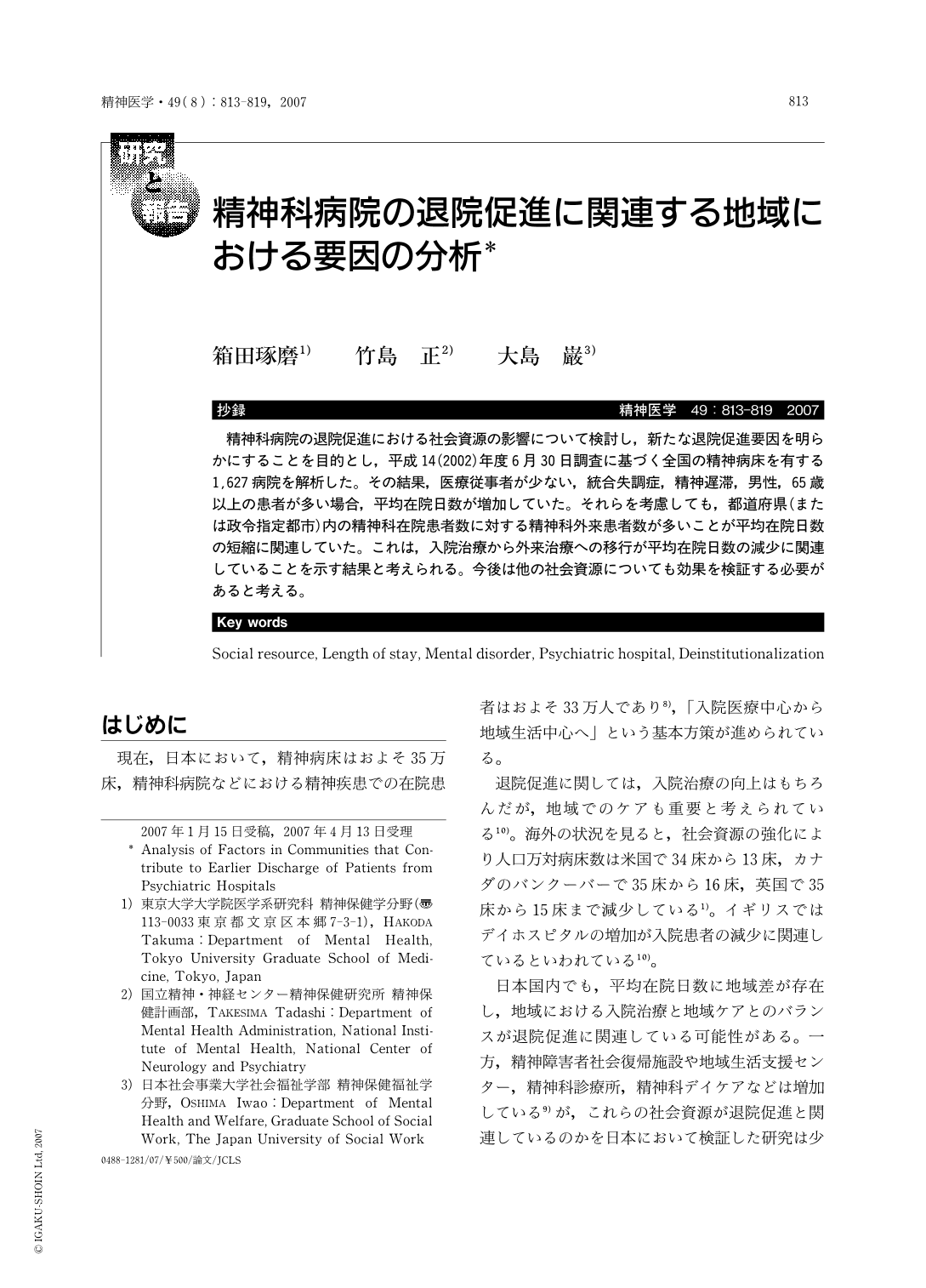Japanese
English
- 有料閲覧
- Abstract 文献概要
- 1ページ目 Look Inside
- 参考文献 Reference
抄録
精神科病院の退院促進における社会資源の影響について検討し,新たな退院促進要因を明らかにすることを目的とし,平成14(2002)年度6月30日調査に基づく全国の精神病床を有する1,627病院を解析した。その結果,医療従事者が少ない,統合失調症,精神遅滞,男性,65歳以上の患者が多い場合,平均在院日数が増加していた。それらを考慮しても,都道府県(または政令指定都市)内の精神科在院患者数に対する精神科外来患者数が多いことが平均在院日数の短縮に関連していた。これは,入院治療から外来治療への移行が平均在院日数の減少に関連していることを示す結果と考えられる。今後は他の社会資源についても効果を検証する必要があると考える。
In 2002, Japan had about 350,000 psychiatric beds and about 330,000 psychiatric inpatients. The government encourages community social resources to promote deinstitutionalization. To clarify the effects of social resources in the community on the discharge of patients from psychiatric hospitals, we analyzed 1,627 hospitals that had psychiatric beds. The results showed that lengths of stay(LOS)increase with the rate in hospitals of inpatients with schizophrenia and mental retardation, inpatients over 65 years old, male inpatients, and the number of inpatients per medical staff. Contrary to this, the hospitals that were in areas(or cities)having more psychiatric outpatients per psychiatric inpatients had a shorter LOS. The shift from inpatient care to outpatient care is considered to shorten LOS. However, it is found that some social resources do not shorten LOS. It is thus necessary to examine the effects of many other social resources on the discharge of patients from psychiatric hospitals.

Copyright © 2007, Igaku-Shoin Ltd. All rights reserved.


